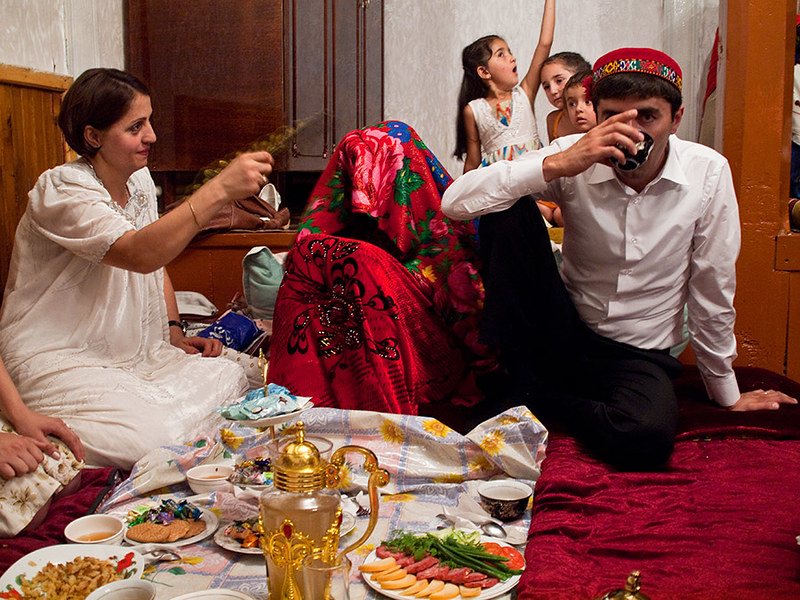Traditions imposed by law in Dusanbe
A controversial regulation - which in theory is supposed to prevent excesses during weddings, funerals and other ceremonies - actually translates into a series of bureaucratic burdens with serious financial burdens for citizens. In the first six months of the year alone, the police carried out thousands of checks, collecting fines of hundreds of thousands of euro
Dusanbe (AsiaNews) - In the first six months of 2024, Tajikistan's courts imposed numerous fines of 7 million somoni (almost 600 thousand euros) on the population for violating the laws on respecting traditions. Added to this are fines for violations of parental responsibility for another 3.5 million somoni, thus reaching 900 thousand euro.
State officials describe these laws as ‘national’, necessary to ‘make life easier for the Tajik population’. In particular, the deputy chairman of the Dušanbe Committee for Religious Affairs and Respect for Traditions, Farrukhullo Olimzoda, believes that the law can ‘reduce the level of poverty in the country’, as per capita spending after the law was passed in 2007 is said to have been reduced threefold. According to official data, the population's bank deposits are growing annually by 20-25%, and people are stopping borrowing money for various initiatives.
Olimzoda also points out that marriages have increased a lot: ‘While 57,115 new families were formed in Tajikistan in 2006, after the passing of the law, their number is increasing to 100,000 per year’, and social events are also being held more frequently, between 135 and 150,000 each year. However, despite the optimistic statistics, the violation of the laws on traditions has not disappeared in the country: the authorities speak of 12 thousand police checks in the first half of this year, with 25 thousand reports of culpability. As Olimzoda comments, ‘the practice of organising excessive and extravagant forms of celebration still exists’.
The Committee official also states that the Traditions Act has also helped to ‘create the conditions to stop the slaughter of animals historically representative of tribal customs’. This has led to a steady increase in the price of meat in Tajikistan to over 100 somoni per kilo, and more and more of the meat slaughtered comes from Russia and European countries, in a country still heavily reliant on agricultural work.
A report on Radio Ozody reports the testimony of a resident of Dušanbe, Firdavs Davlatov (name changed at the request of the interviewee), who in 2023 was fined 7,920 somoni for infringing the law on traditions, for the funeral celebrations on the occasion of his father's death, despite the fact that he had organised them in the spaces specially reserved by the authorities, and had also offered refreshments at the nearby home for the elderly. Yet the policemen interrupted the meeting, fining him more than the entire cost of the event. ‘If this is an easing of living conditions, I can't imagine what an easing would be like,’ Firdavs commented.
Economist Ali Alizod believes that the law actually contains a number of bureaucratic burdens, which are often overlooked by the authorities. ‘The law involves a long course of administrative steps,’ Alizod points out, ‘such as approval of the permit to organise a reunion of various kinds, health checks of the bride and groom before the wedding, signing of the contract between the families, bookings of the restaurant and music collectives, expenses for video filming, and so on,’ with serious financial burdens. Even just to get a group together for the so-called Utrennyj Plov, the ‘morning rice’, in the cheapest restaurants one has to pay at least 15 thousand somoni, more than USD 1,250, while in the most sought-after establishments, it goes up to 150-160 thousand somoni.
In reality, in order to observe the traditions according to the laws, the inhabitants of Dushanbe must still seek loans from relatives and acquaintances, and only the richest families manage to formally observe the rules, which are then very often broken after the initial checks. Tradition in Tajikistan is becoming increasingly expensive and risky for the population.
Photo: Flickr / Evgeni Zotov
07/02/2019 17:28







.png)










